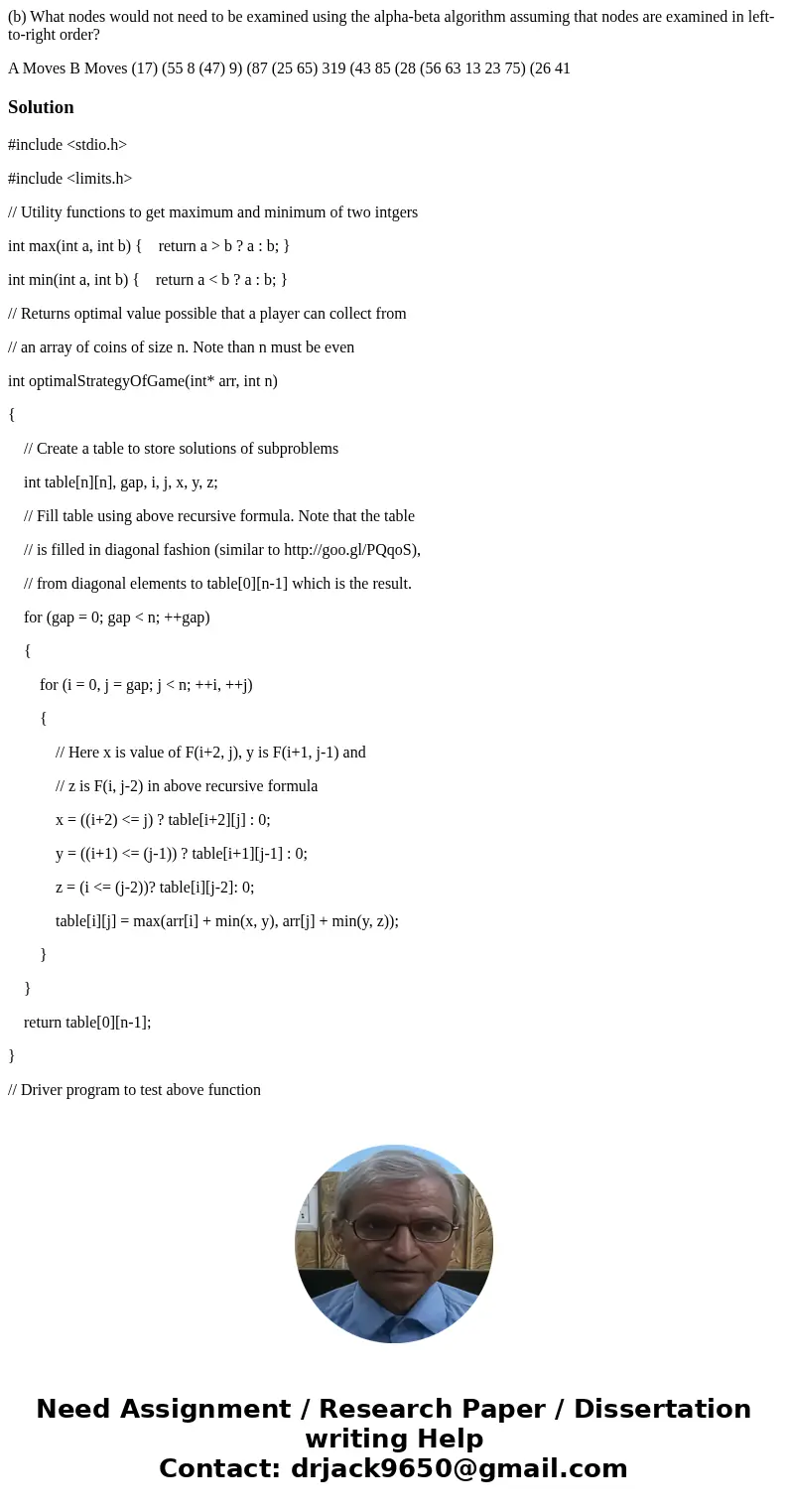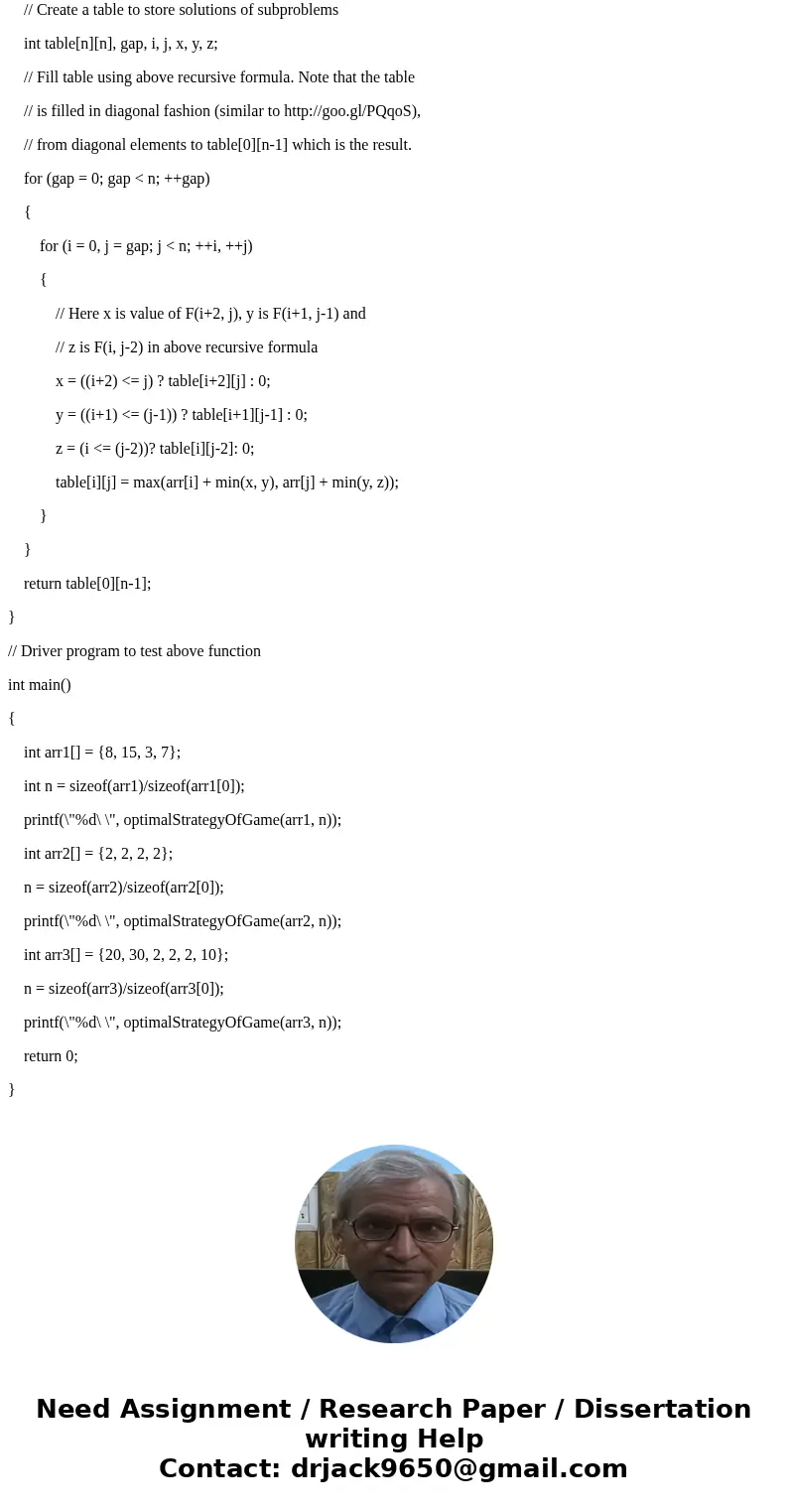b What nodes would not need to be examined using the alphabe
(b) What nodes would not need to be examined using the alpha-beta algorithm assuming that nodes are examined in left-to-right order?
A Moves B Moves (17) (55 8 (47) 9) (87 (25 65) 319 (43 85 (28 (56 63 13 23 75) (26 41Solution
#include <stdio.h>
#include <limits.h>
// Utility functions to get maximum and minimum of two intgers
int max(int a, int b) { return a > b ? a : b; }
int min(int a, int b) { return a < b ? a : b; }
// Returns optimal value possible that a player can collect from
// an array of coins of size n. Note than n must be even
int optimalStrategyOfGame(int* arr, int n)
{
// Create a table to store solutions of subproblems
int table[n][n], gap, i, j, x, y, z;
// Fill table using above recursive formula. Note that the table
// is filled in diagonal fashion (similar to http://goo.gl/PQqoS),
// from diagonal elements to table[0][n-1] which is the result.
for (gap = 0; gap < n; ++gap)
{
for (i = 0, j = gap; j < n; ++i, ++j)
{
// Here x is value of F(i+2, j), y is F(i+1, j-1) and
// z is F(i, j-2) in above recursive formula
x = ((i+2) <= j) ? table[i+2][j] : 0;
y = ((i+1) <= (j-1)) ? table[i+1][j-1] : 0;
z = (i <= (j-2))? table[i][j-2]: 0;
table[i][j] = max(arr[i] + min(x, y), arr[j] + min(y, z));
}
}
return table[0][n-1];
}
// Driver program to test above function
int main()
{
int arr1[] = {8, 15, 3, 7};
int n = sizeof(arr1)/sizeof(arr1[0]);
printf(\"%d\ \", optimalStrategyOfGame(arr1, n));
int arr2[] = {2, 2, 2, 2};
n = sizeof(arr2)/sizeof(arr2[0]);
printf(\"%d\ \", optimalStrategyOfGame(arr2, n));
int arr3[] = {20, 30, 2, 2, 2, 10};
n = sizeof(arr3)/sizeof(arr3[0]);
printf(\"%d\ \", optimalStrategyOfGame(arr3, n));
return 0;
}


 Homework Sourse
Homework Sourse